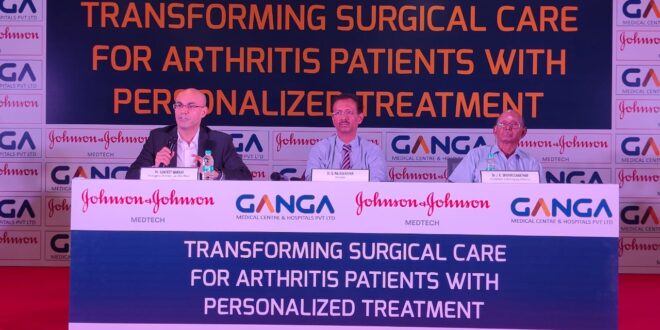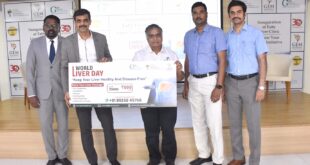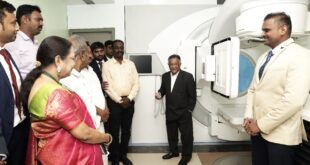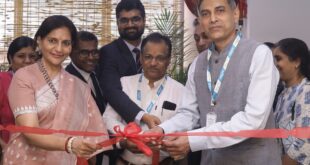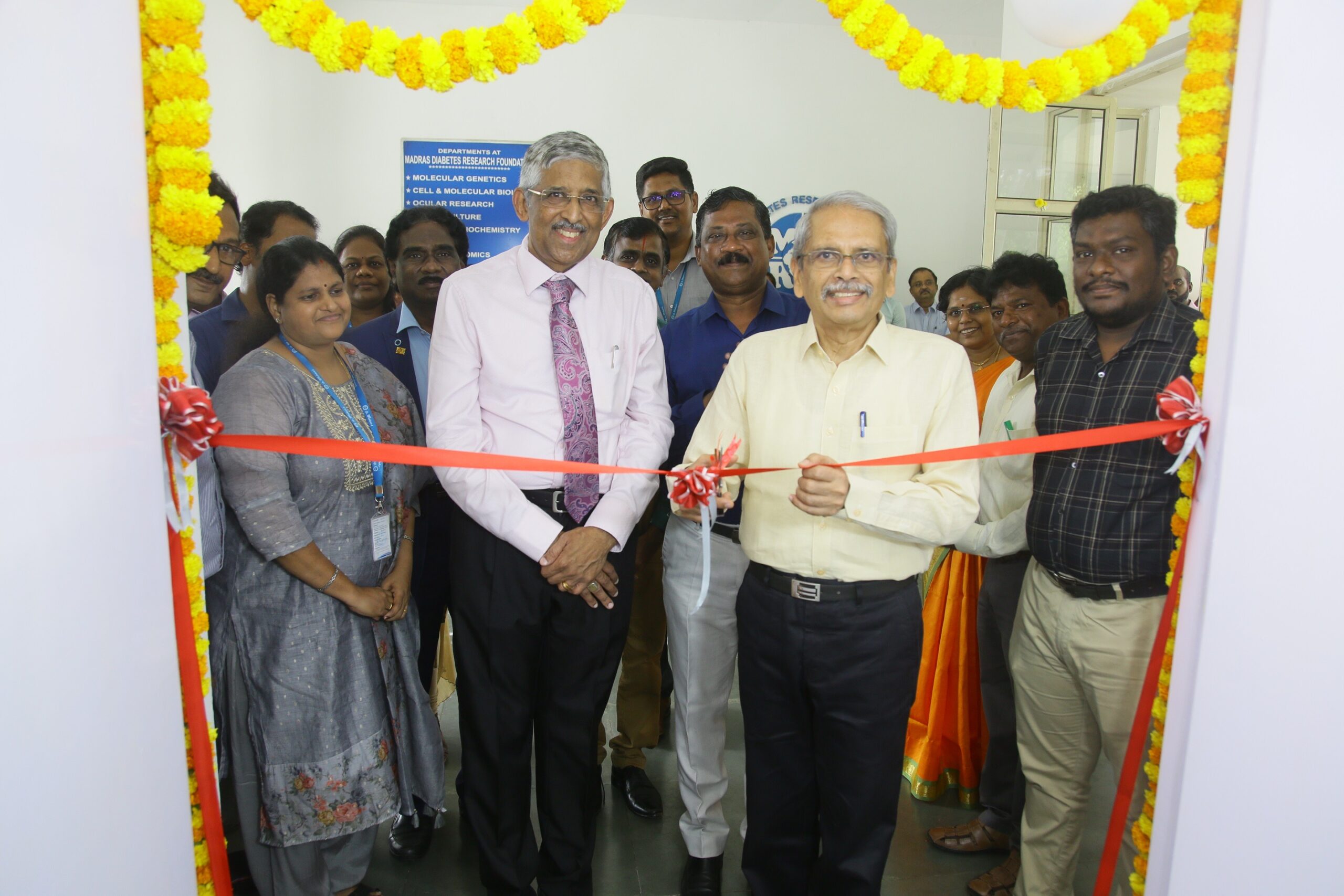CHENNAI, November 23, 2022: In India, arthritis is expected to emerge as the fourth most common cause of physical disability.1Patients face restricted physical movement and deformities at advanced stages, suffering from pain and losing productive years of life. Johnson & Johnson MedTech India and Ganga Medical Centre & Hospitals held an insightful session today to spread awareness on the rising cases of arthritis and the latest breakthroughs in treatment for best patient outcomes.
Knee replacement surgery has emerged as one of the most viable solutions for advanced stage of arthritis. Over 2 lakh knee replacement surgeries were performed in India in 20202, which is just a fraction of the estimated 60 lakh surgically eligible patients. The number of arthritis cases are expected to grow even further with a rise in lifestyle-related diseases. As every patient is unique so is every knee. Surgeons are often looking for the latest technology as they aim to improve patient outcomes, and shorten the recovery time for patients. Advent of innovative robotic-assisted technology has increased accuracy and personalization in knee replacement surgery based on individual needs. The knee replacement surgery can now be performed based on each patient’s unique anatomy. This technology is designed with the goal to get patients back to life faster.
Sandeep Makkar, Managing Director, Johnson & Johnson MedTech India says: “At present, about 20,000 orthopaedic surgeons in India3 cater to a population of approximately 130 crores and skilled care is concentrated in big cities, which poses a huge burden on the healthcare system. Johnson & Johnson MedTech India is committed to make healthcare professionals in India future ready by training and upskilling them in safe and effective use of innovative technologies that are at par with global clinical standards in the field of complex surgeries, including robotics. With world-class training tools, including virtual reality, and data-driven technologies, we can ensure personalized care for patients, with better results and faster recovery, not just in metro cities but also in Tier 2-3 cities.”
Dr (Prof) S Rajasekaran, Chairman, Department of Orthopedics, Trauma & Spine Surgery, at Ganga Medical Centre & Hospitals says: “The modern buzz word for health is ‘Mobility is Life and Life is Mobility’. When you have severe arthritis, patient gets severe pain in the joints which restricts his mobility considerably. This has many implications for the patient. First of all, there can be incapacitating pain making activities of daily life very difficult and sometimes disturbing the night sleep also. Secondly, it also makes them dependent on someone else robbing the individual of his independence. Thirdly and most importantly, it also results in lack of confidence and loss of self-esteem for the patient. Joint replacement can be a very effective solution for this problem, and it can give them a second lease of life.
Although total knee replacement has been a very successful procedure, Robotic assisted technology can be the next biggest innovation in this field. It allows precise planning of the sizing and placement of the prosthesis according to the specific anatomy of the patient. There are sophisticated softwareswhich allow perfect balancing so that the knee has got a smooth movement through the entire range of motion. All these will not only improve the pain outcomes but also will result in early mobilization, shorter hospital stays and longer implant survival.”
Robotics-assisted technology can help surgeons with case planning based on the unique needs of a patient and can provide data-backed precision guidance during the procedure. Moreover, by providing real-time image of the surgical site, certain next-generation robotic-assisted solutions are helping surgeons visualize the knee implant, eliminating the need for unnecessary exposure of patients to Computed Tomography (CT) Scan radiation. Such personalized surgery based on the unique needs of a patient ultimately results in improved patient outcomes, increased mobility, and faster recovery. Robotic assisted technologies are designed to elevate the orthopedic experience for patients, surgeons, and care teams.
As the technology becomes more accessible at healthcare centers, patients will be able to benefit from the combined medical expertise of surgeons and robotics to deliver personalized care. This will change the way surgeries would be done in the future, leading to better patient outcomes, and reducing the burden of arthritis-related ailments.
References:
1. Vikramraj Jain Burden of Osteoarthritis in India (October 2020) In book: Handbook of Rheumatic Diseases – OSTEOARTHRITIS https://www.researchgate.net/publication/344809810_Burden_of_Osteoarthritis_in_India
2. Shrinand V. Vaidya1 · Abhinav D. Jogani et.al India Joining the World of Hip and Knee Registries: Present Status—A Leap Forward Indian Journal of Orthopaedics (2021) 55 (Suppl 1):S46–S55 https://doi.org/10.1007/s43465-020-00251-y Received: 7 June 2020 / Accepted: 2 September 2020 / Published online: 16 September 2020 © Indian Orthopaedics Association 2020
 Expressnews
Expressnews


